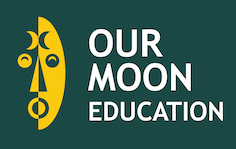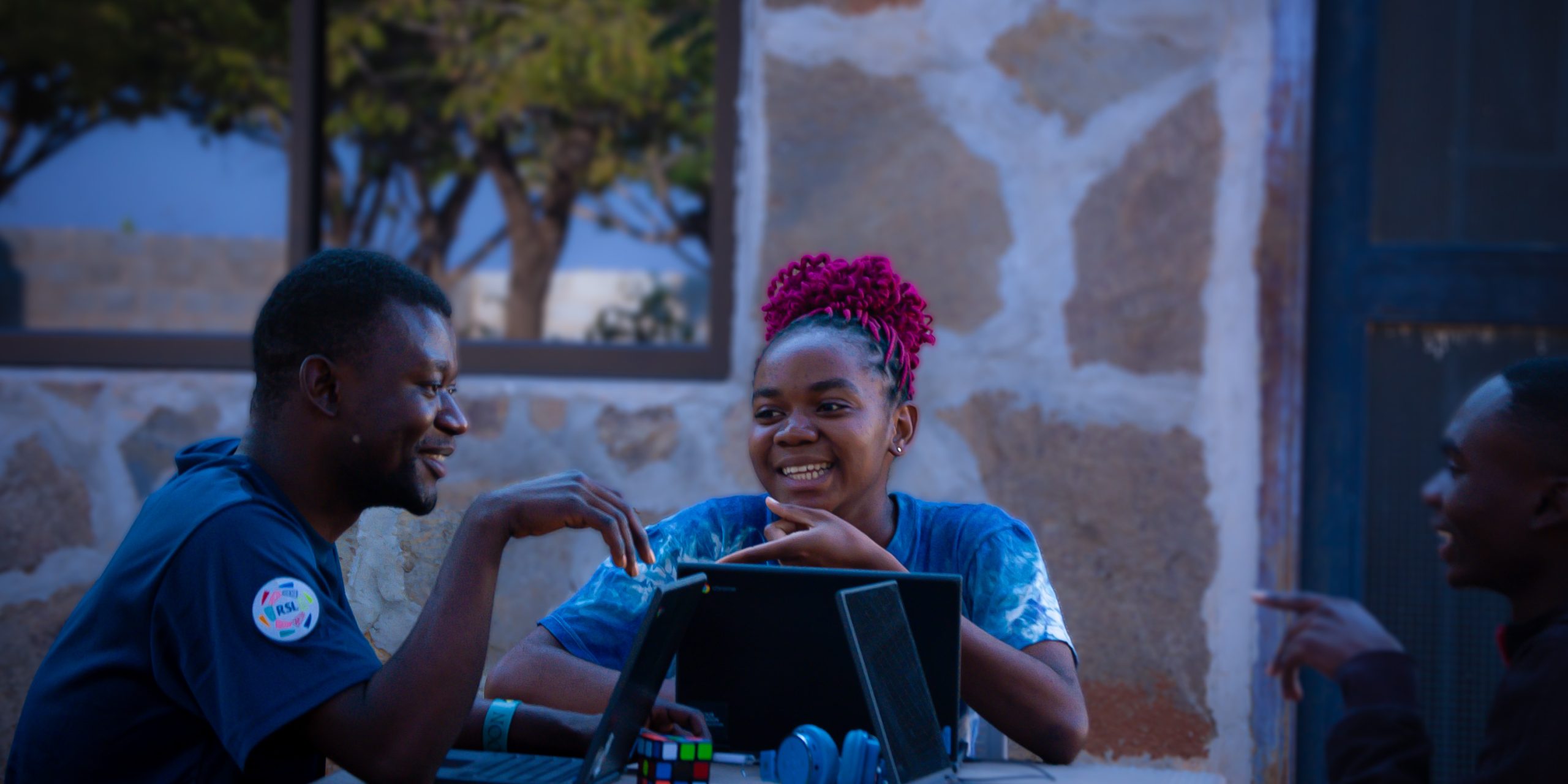Damaris continues her blog series telling us about the research she carried out while at Our Moon and how it was a transformational experience for her. We are very grateful to the teachers of Ecolint, Switzerland, for the time they voluntarily give to our students on our Young Leaders Programme.
Have you ever felt excited about embarking on a new experience but, daunted by the prospect of achieving your desired outcome? Whether the answer is yes or no, I hundred percent recommend that you trust the process, and put on your best learning gear. As part of Our Moon’s Young Leaders Program, I had an opportunity to author a fully referenced 4000-words research essay – a chance to reflect upon a global issue and look at it from a Zambian context. One of the most interesting parts of this journey was choosing the global issue and producing a research question that was tailored to the Zambian scenario. At first, I was undecided on which global issue I should focus on because I wanted to pick a topic I am particularly interested in, and I am interested in many things! With the guidance of Tony, my mentor from Ecolint, and Helen, I produced a research question that was going to guide my research and my 4000-words writing journey.

PRODUCING A RESEARCH QUESTION
“To what extent does having fewer females than males in Science, Technology, Engerineering and Mathematics (STEM) education at Zambian universities and the contributory local factors aid its slower economic development?” I tailored my research question in such a way that it allowed me to look at one issue from multiple perspectives. My research explored the global issue of inequality while revealing the correlation between the gender gap in STEM education and the slow economic development in Zambia. The aim of my research was to build a theoretical understanding of the global issue, to inform our empirical understanding of the specified inequality and to offer recommendations for the STEM revolution in Zambia.
MY RESEARCH METHODS
The empirical research was based on qualitative data. I interviewed people, conducted an online survey, reviewed online journals and I also used available statistics to thoroughly explore my topic. I designed the online survey to get first-hand information on our local reasons for the gender inequality in STEM education at five Zambian Universities. Using python, I created the graph below to highlight the results from the survey: it represents the percentage of students that indicated the factors that influenced their decision for not studying in a STEM field after secondary school. The females that responded are currently enrolled in non-STEM fields at Zambia’s Universities.

KEY FINDINGS FROM MY RESEARCH
My research revealed some of the global trends of the gender gap in STEM education and the extent of the phenomenon in other countries. Gender inequality in STEM education exists globally and the female enrolment in universities across sub-Saharan Africa has increased, but even so, the gender gap is wide. Furthermore, highlighting the correlation between the gender gap in STEM education and the slow economic development, my research showed that the effects of the gender imbalance are more common in countries with a developing economy like Zambia. The gender gap is larger in countries with a low GDP and one of the characteristics of a developing economy is low human capital. The lack of inclusion in STEM education limits diversity in the country’s human capital, hence hindering productivity. The correlation between Zambia’s slow economic development and the gender gap in STEM education is such that the slow economic development contributes to widening the gender gap in STEM and the gender gap contributes to the slow economic development. In addition, gender equality in STEM education will positively affect the developing status of Zambia by diversifying and increasing the human capital necessary for development and economic growth.
Authoring my research essay was not only academically enriching but it was a process of self-discovery. This experience provided me with an opportunity to explore my interest in STEM fields and STEM inclusion advocacy, while building skills that will help me handle the complexity of the university environment.
MY RECOMMENDATION FOR THE STEM REVOLUTION IN ZAMBIA
After conducting my research, I concluded the essay by offering recommendations for narrowing the gender gap in STEM education at Zambian Universities. My recommendations are based on using equity to achieve an equal outcome:
- Having a strong STEM career preparation system is key to boosting the number of females entering STEM fields in higher education. Zambian Secondary Schools need to invest in having STEM qualified teachers. This will give girls the confidence to take on STEM fields because they will be prepared.
- Identifying and exposing girls to role models is another way of narrowing the gender gap in STEM education at our local higher learning institutions. This will help reduce gender stereotyping.
- Provide parents with information about the benefits of a STEM education.
- Zambian government should find ways to increase funding for STEM institutions and students.
- Females in STEM should support initiatives aimed at promoting the inclusion of girls in STEM education.
THE ULTIMATE LEARNING EXPERIENCE
Authoring my research essay was not only academically enriching but it was a process of self-discovery. This experience provided me with an opportunity to explore my interest in STEM fields and STEM inclusion advocacy, while building skills that will help me handle the complexity of the university environment. As it was my first research experience, I had not even heard of the word plagiarism (the crime of stealing someone else’s intellectual thoughts, ideas and words and passing them off as your own), so I learnt how to properly reference my work. I developed organizational and effective communication skills as I had to interview people for my research. Even the sessions I had with my mentor required me to explain and present my findings. I was introduced to academic writing and through the process I developed a strong career interest in scientific research. Going forward in my academic journey, I hope to continue adding to the body of research for the progression of our societies.


